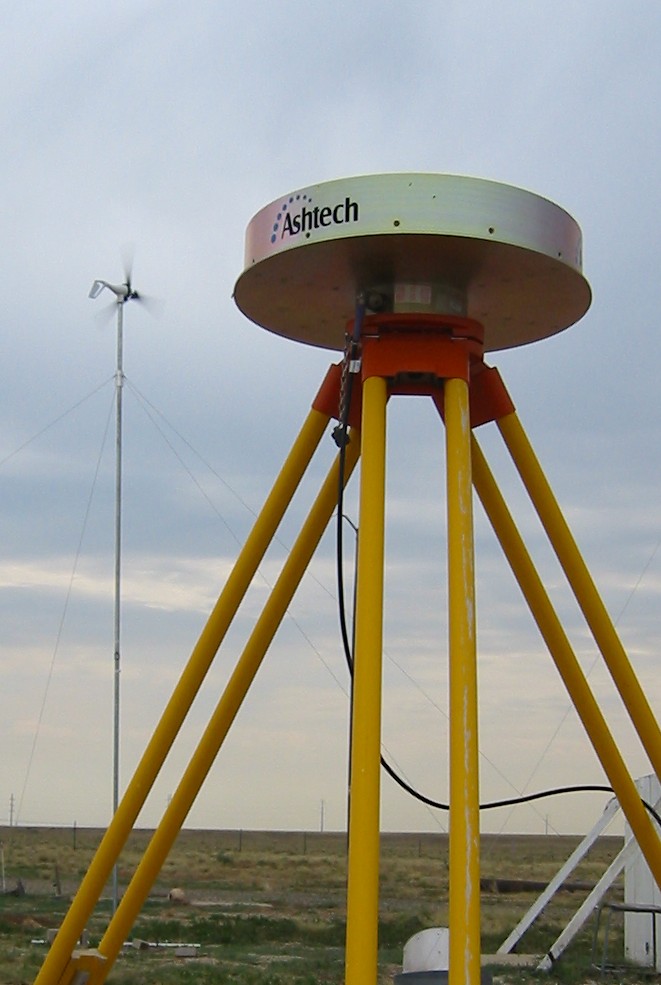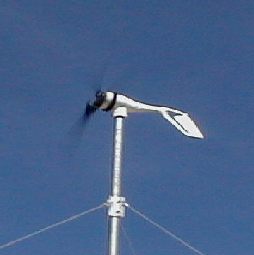Power - Wind Power Testing at UNAVCO through 2005 (summary)
Wind Power Testing at UNAVCO through 2005
Alternative Power Source for Continuous GPS Stations

With an increasing number of GPS site installations in locations such as Antarctica and Alaska, it is important to examine renewable energy alternatives. Wind generators can deliver increasingly high amounts of power at an affordable price. When coupled with solar systems, large loads can be powered reliably, even in poor weather or during periods of reduced sunlight (such as in polar regions). Other locations that can benefit from wind power include areas shaded by buildings or mountains, coastal areas and mountain ridges above tree line.
Because of more complex environmental, mechanical and electrical factors, there are concerns. First, reliability of the wind source. A generator is only useful if there is a guaranteed source of wind. Few areas can promise a daily wind. Fortunately, an easy way around this is to increase storage capacity to compensate for stale periods. Second, is the generator going to be reliable? If blades break, brushes wear out or bearings are thrown, is it worth it to send someone out to fix it? Third, do you have quality in your charging? If the charge curve contains a large number of spikes, how is this going to effect your equipment or communications? Lastly, is the power source cost effective? Are you better off just adding more panels and batteries, or can a wind generator reduce the overall cost of your system?
The following phases of testing the generator at UNAVCO are designed to examine theses concerns. Information about the generator, system designs, graphs and pictures about each phase are described and linked to below.
Wind Power for Remote DC Powered Stations (White Paper, May 2003, .pdf)
Wind Generator Specifications (from literature)

Manufacturer: Southwest Windpower (http://www.windenergy.com)
Model: Air Industrial
Voltage: 12V
Rotor Diameter: 46 (1.14 Meters)
Start-up Wind Speed: 7 MPH (3 m/s)
Output: 300 Watts at 28 MPH
System Testing, Data and Pictures
Phase 1: Initial testing in high wind enviroment. Establish base test parameters and identify any initial system issues. 4/02-6/02
Phase 2: Alternative power management. 8/02-9/02
Phase 3: CU MRS Tundra Lab - Extreme Weather Testing. Currently running since 18 September 2002. Includes link to live web cam, installation photos, failure analysis and more...
Send questions or comments about this page to Support (support![]() unavco.org).
unavco.org).
)